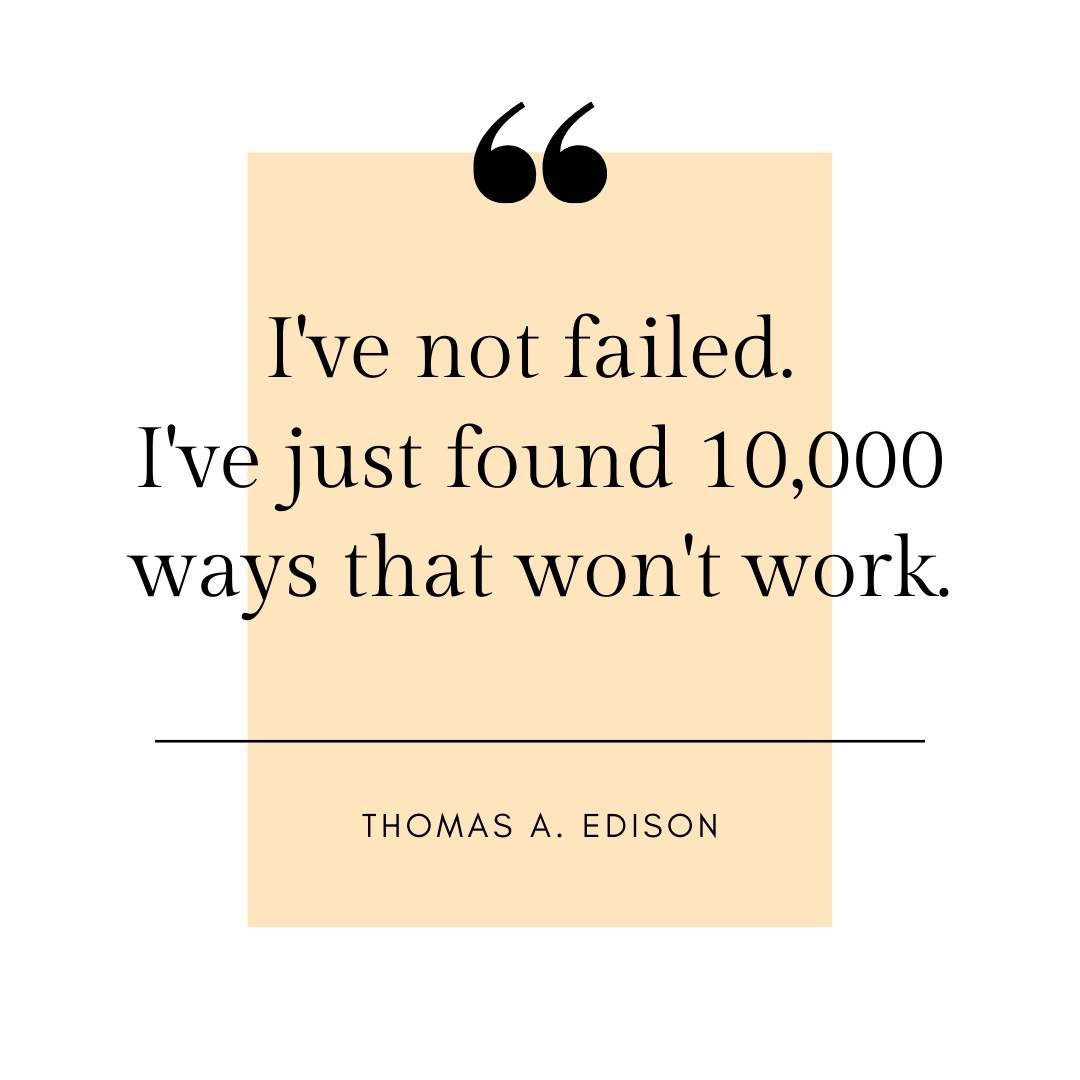There’s nothing wrong with making mistakes. In fact, behind most mistakes, there is a huge opportunity to learn and do better than if you never made the mistake in the first place.
However, there’s a big difference between learning from challenges and difficulties that make us grow as an individual, and not doing the things that significantly reduce or block our chances at success.
What you don’t do is as important as what you do do.
Knowing this difference is a typical tell-tale sign that comes with someone who is successful.
What Successful People Avoid
Here are 9 things that successful people don’t do:
1. Not Seeing The Big-Picture
There are a lot of things that seem to take up all our time and it’s easy to get lost in the weeds.
On one side, there’s “doing the work”, but equally as important is that what you’re doing is aligned with your goals.
Most people get lost in the weeds and lose sight of what they were trying to accomplish in the first place. But, successful people realise that both big picture thinking and detail thinking are important, and neither works in isolation.
How do they combine the two?
They take a systematic approach to planning, that allows them to reflect on the actions they’re taking, to consider alternative strategies, and to ask the hard questions that most people avoid.
2. SOS (Shiny Object Syndrome)
There’s a popular scene from the animation movie, Up (2009), where Dug (the talking dog) is speaking and all of a sudden goes “SQUIRREL!”:
It’s an amusing scene, but ironically this is what’s at the heart of shiny object syndrome (SOS): distraction.
Here’s how it usually plays out:
- Something “new” catches your attention. This could be an idea you think of/heard of, a new gadget/software/technology, a new strategy/technique/hack, etc. As far as you’re concerned, it requires your attention.
- You begin looking into this new thing and feel a sense of excitement and energy from it.
- It becomes your top priority and re-direct your focus to this.
- At some point, the initial sense of excitement and enthusiasm begins to wear off, you hit a roadblock, or you get bored.
- And then back to 1 again.
This cycle repeats itself and you find yourself with too many ideas, going off in a million directions and nothing to show for all your effort. On top of it, this constant loss of focus costs you:
- Money.
- Time.
- Productivity.
All of that and more, wasted.
Instead, successful people are consistent and persistent in their goals, and keep going until they’ve achieved their objective, without letting themselves get distracted from their big picture.
3. Overlooking Failures
Failure is not a problem – in fact, it’s unavoidable. It’s what happens after the fact that matters:
If When you make a mistake, in order to be successful you must be willing to reflect and learn from it. This way you can separate what worked from what didn’t.
Otherwise, how are you to know to avoid making the same mistake again in the future?
The definition of insanity is doing the same thing over and over again and expecting different results.
Overlooking your failures would be like getting the results back from an exam/test and not looking at what you got wrong, knowing fully well that you’ll have to answer similar questions over and over again in the future.

4. Blaming Others
From a young age, we’ve been taught that failure is a bad thing: at home, in school, and society in general.
This association makes us want to avoid situations where we do something wrong, and the typical response mechanism is to direct the blame elsewhere (usually at someone else). I.e.
“It wasn’t my fault”.
Sure, you might be right. However, with this mentality you’ll never truly be empowered to be a person who takes responsibility and ownership, is trusted by others, and can learn from mistakes.
Successful people don’t point the blame at others. And even if someone else is indeed at fault, the focus is never on who, but instead on what.
5. Not Knowing Your Strengths
There’s a well-known maxim: “You can be anything you want to be, if you just try hard enough.”
Most people embrace this maxim as a path that must be walked before they can be successful. However, at its core, this is fundamentally flawed as you can end up focusing and working on what you are not.
You have a unique set of strengths and qualities about you, which you may have been born with or have developed over time.
When you know what your strengths are, you are able to see a much greater return from your efforts and time investments, AND make better decisions because you are able to distinguish between what you’re great at and what you’re not naturally inclined to do.
It can be worthwhile to work on your weaknesses, but when you spend more time using and developing your strengths, you produce 10x the results in comparison.
6. Poor Time Management and Prioritization
What you do with the time you have is the most pivotal and potent decision you have to make.
“Either you run the day, or the day runs you.”
Jim Rohn.
Not all actions are created equal and how you plan and schedule your day, week, month or year will effectively determine your results.
How do most successful people make effective use of their time and set their priorities? By having a well laid out plan and using a project management system.

7. Emotional Decision Making
It’s well known that our emotions can cloud our better judgement. And that’s because it’s easy to make a poor choice when you’re feeling happy, angry, sad or excited.
“It is reason, and not passion, which must guide our deliberations, guide our debate, and guide our decision.”
Barbara Jordan.
In almost all cases when making big decisions, experience and logic that are best. When your mind is clear and relaxed, all of your intellectual capability is at your disposal.
8. Procrastination
When you look at most people’s calendar, “tomorrow” is the busiest day of the week.
As humans, we’ve been procrastinating for centuries! It’s a habit deeply ingrained in our nature.
Procrastination is present moment self-defence against future stress. Be aware of your behaviour (the procrastination), acknowledge the stress and take immediate, achievable actions that are meaningful to your objectives.
Successful people realise that the feeling of procrastination is not a sign of lack of motivation or a trait. They turn the tables by getting things done even when they don’t feel like it, no matter how small.

9. Indecisiveness
Indecisiveness is a habit that keeps most people stuck; the most successful people are able to make up their minds, either immediately or within a very short period of consideration.
If you constantly struggle to make decisions, you are continuously in a state of conflict and fear i.e. stress.
A decent decision made quickly and that you stick with, is better than a great decision a year from now, that you can’t maintain.
In addition to this, successful people don’t change their minds frequently after they’ve made a decision; they stay the course. This is one of the reasons unsuccessful people fail to make progress.
In Summary
How many of these mistakes do you make regularly? Can you see how they limit your success?
Sometimes, it’s more about avoiding the wrong things than doing the right things. Avoid the common mistakes that unsuccessful people make. Most of us don’t just make these mistakes, we make them over and over. Avoid the same mistakes successful people avoid and you can expect more success in your life.

